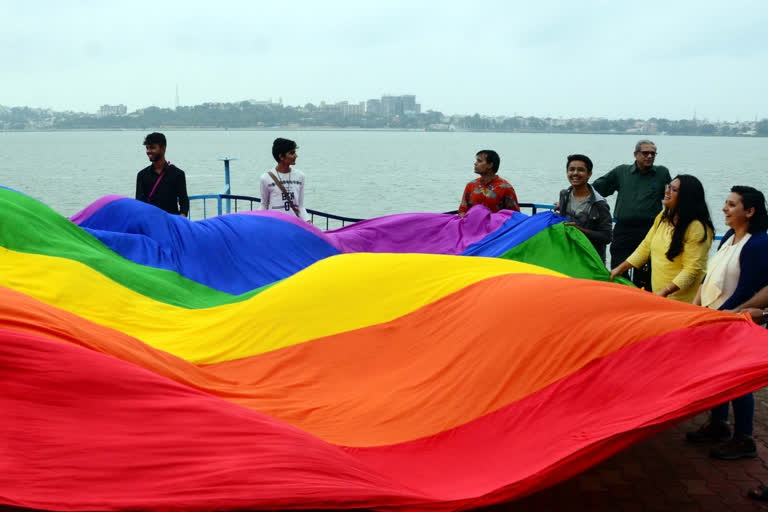New Delhi:This day, last year, the Supreme Court decriminalised homosexuality.
The 12 months that followed the apex court's historic verdict ushered in a wave of positive changes in favour of the LGBTQ community, say rights activists and other experts.
Though the road to true inclusivity is long and riddled with potholes, some progress has been made -- the community has found representation in mainstream politics and entertainment, corporates have become more inclusive, the government is creating an anti-discrimination framework for transgenders, and more people are coming out in support.
"From being page 15, we have become page 1 and page 2," rights activist Harish Iyer told.
According to the 40-year-old, the most evident change since the landmark judgement has been an increase in the visibility of LGBTQ people, and the community has the mainstream media as well as social media to thank for it.
"Visibility has been one of the main reasons why acceptance has grown as well. So the new perception is that if you are a homophobe, you are a bad person.
"Earlier it was ok to say 'they are gay people, why are you mingling with them?' That is changing. I can't talk about the whole of India, but in metros it's definitely happening," Iyer said.
On September 6, 2018, a five-judge Constitution bench of the Supreme Court unanimously decriminalised part of the 158-year-old colonial law under Section 377 of the IPC which criminalised consensual unnatural sex.
However, the fight against the still prevalent regressive mindset remains the core of the battle, said transgender activist Achinta of Kolkata-based youth organisation Prantakatha. But she is optimistic.
"The mindset that has developed over a thousand years cannot be changed in just one. But I'm hopeful that we'll get there," she said.
In the year since the Supreme Court's verdict, transgender persons have been taking part in mainstream politics.
The Aam Aadmi Party fielded Bhawani Nath Valmiki from the Prayagraj Lok Sabha seat in Uttar Pradesh, and the Bahujan Samaj Party backed Kajal Nayak for the Korei Assembly seat in Odisha. Both lost their seats, but the symbolism was more than welcome, say community leaders.
READ: Mortal remains of Arun Jaitley submerged in Triveni Sangam
In January this year, the Congress appointed Apsara Reddy, a trans woman, as national general secretary of the All India Mahila Congress.
In July 2019, the Lok Sabha cleared The Transgender Persons (Protection of Rights) Bill 2019 that sought to create policies for the people of the community, and help them to obtain documents of identification.
To open up employment avenues, the country's first LGBTQ job fair was organised in Bangalore in July by Pride Circle, a volunteer-driven platform that engages with LGBTQ individuals.
Another all-inclusive job fair Vividh by 6 Degrees, a Mumbai-based LGBTQ growth network, followed suit.
The movement received a massive lift when sprinter and national champion Dutee Chand came out as a lesbian, becoming the first Indian athlete to do so.
